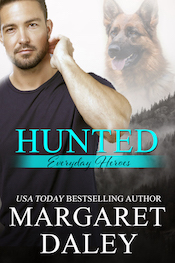
1. What made you start writing?
Writing always came easy to me. As I child I wrote stories, and when I was a teen, besides writing for the school newspaper, I also wrote for two community newspapers as part of the teen page. When I began college, I decided to go into journalism, but my college education was delayed for a couple of years, and in the meantime, I decided against journalism and chose education as my major. Still I did a lot of writing both professional in my career and just for fun—humorous skits and plays for the teachers and for my church: puppet scripts, church programs, columns for my church newsletter and much more, but nothing for publication. When I had enough years to retire from my counseling position, I knew I wanted to do something interesting, because I was still young enough to enjoy working, I decided to try writing. My first published worker was church materials and the next, articles for national Christian magazines mainly on parenting and teen issues and also for Sunday school materials. Being very successful with selling most everything I wrote, I then decided to try my childhood dream of writing fiction.
2. How long have you been writing? When did you sell your first book?
I began writing for publication in 1994, the year before I retired. In September I submitted a book of four Christmas programs I had written for my church. The book, Kneel Before the Babe, was contracted in January 1995. I continued to write articles and short stores for magazines which sold, but in 1997, I also began to write fiction. I sold my first novel to Barbour in 1998. Six months later, I sold my second novel to them which was released in 1999 and that year, I sold my first book to Steeple Hill Love Inspired.
3. How do you handle rejection?
I approached writing by expecting rejection so I was always thrilled when my work sold. Like everyone, rejection is disappointing, but I learned very quickly that rejection has nothing to do with me as a person and in most chases has nothing to do with the writing. The publisher may have purchased something similar recently or the article or story didn’t fit their themes or wasn’t a topic in their guidelines. Being published, as you know, doesn’t mean never being rejected again. I recently had a four book proposal rejected and a novel with a CBA publisher passed on (which is a nice way of saying rejected.)
4. Why do you write?
I must. It’s as simple as that. My mind is filled with stores that I want to see in print. I love being blessed with so many sales, forty contracted novels, so I truly believe the Lord has deigned me to be a writer of Christian fiction. Since I am a teacher at hear and know that Jesus taught using parables, I also believe that my novels are modern day parables that can touch people’s hearts and make a difference in their lives. For these reasons, writing is a must.
5. What would you be doing with your free time if you weren’t writing?
Besides writing, I am very active in music. I sing with a well-known Christian group in the Detroit area, and I also am a soloist and choir member at my church. I play handbells and handchimes at my church, too, and I’ve written numerous dinner theater programs which we have used in the past as fund-raisers for various events. If I weren’t writing, I would be more involved in my music—probably playing handbells in the community—and I would have time to direct and be part of the dinner theater productions. I’ve want to do this but with my writing schedule, it’s been impossible. I would also travel. That’s something that I love to do.
6. What are you working on now?
I’ve recently completed my final contracted series so I need to send in a new proposal. I have a three book idea that involves a dog shelter and the three women involved. It’s been pre-approved so hopefully it will be a go. I’m also waiting for responses on a single title that’s making the rounds. The book is called, Secret Places, and it’s a book I absolutely love.
7. Do you put yourself into your books/characters?
I believe that all authors leave a little of themselves in most books—whether it be elements of their faith, examples of their emotions and experiences, or actually personality traits. In my case, I write about things I know so my books often reflect my interests and bits and pieces of people I know or have met. They are also, in most cases, set in places I’ve traveled or lived.
8. Tell us about the book you have out right now, and tell us how writing non-fiction is different from fiction.
I actually have two books being released in the next two weeks. The first book is, Writing the Christian Romance, being released by Writers Digest. The book will go to the book club and will also be available on Amazon.com. Soon it will be available in bookstores. I have a link directly from my website’s homepage www.gailmartin.com to the order page on Amazon for those interested. Writing non-fiction is a different talent than writing fiction. I think non-fiction needs a teacher’s heart. A writer needs to know how to explain details clearly, precisely and with good examples and excellent organization. Although creativity is needed to provide an interesting writing style and sometimes a storytelling approach, the creativity is very different from fiction. You have no characters to take over and march to their own drum. You have to be the drummer and march to a well-defined tune so that others can comprehend and learn from your book.
My novel, Family In His Heart, is a January release, and it will appear in stores the last three days of December and into January. This is the last book set on Michigan Islands, in this case, Drummond and Les Cheneaux Islands in Michigan’s upper peninsula. Les Cheneaux is French for The Channels and is comprised of thirty-six islands of varying sizes. The book received 4-1/2 stars in the Romantic Times.
9. Do you have any advice for writers?
Helping writers is one of the blessings of a being a novelist. Since one-on-one is difficult when I’m on book deadlines so often, it motivated me to write the book, Writing the Christian Romance which provides details with excerpts from well-known novelists and exercises on all aspects of writing fiction. I have also begun a new blog, Writing Fiction Right which is at:
www.writingfiction-martin.blogspot.com Both the book and blog offer all kinds of help for writers, but my final thought is to be patient. Don’t take the easy way out and self-published or POD publish. Instead wait until the Lord wants to bless your work when it and you are truly ready and when those who need the book are ready to read it. As the Bible says, a man can plan his course but God guides his steps. We often want to push God instead of waiting for His quiet answer.
10. How do you juggle writing for different houses?
The most difficult part is organizing book deadlines. Each house has its own needs of when they want your completed book, and though they try to be cooperative, you can’t play one against the other. You must be faithful to all. For the past two years, I’ve been writing for three different publishers. When I set up a deadline for a book, I view what’s ahead of me as far as other deadlines and I try to consider the time of year and what other events, such as holidays or vacations, will affect my time. Steeple Hill allows up to six months, but I don’t like to take that long so I often aim for four, but when I’m writing books for other houses at the same time then I work around the deadlines so that they will all fit. I can complete the book more quickly than I said I would or I can take the full time. It’s not wise to ask for an extension.
The other difference is the peculiarities of each line. I must consider each publishers guidelines and what they prefer in the ways of formatting and submission. Some publishers restrict certain words or activities – such as alcohol, dancing, and playing games of chance. Some are very rigid with “category” style romances and want every scene to involve the hero and heroine together or thinking about each other. Another isn’t quite as restrictive and a scene might totally involve a subplot, so I must remember who I’m writing for and keep everything according to the publisher’s specific guidelines.
Thanks for inviting me to participate in this interview. It’s always nice to share a little of my life with readers.
Gail Gaymer Martin



